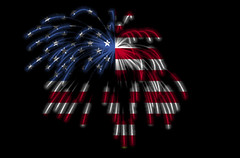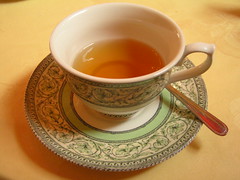| 8044311332 | A land bridge from Asia | How early Americans reached North and South America | | 0 |
| 8044311333 | Nomadic; following food and herds | The lifestyle that encouraged Indians to cross the land bridge | | 1 |
| 8044311334 | Mayan, Inca and Aztecs | The most complex Indian communities living in South America | | 2 |
| 8044311335 | Maize | This crop transformed nomadic hunter-gatherer societies into settled farm communities | | 3 |
| 8044311336 | Silk, Spices, Oils/Perfumes | Items desired from Persia & China | | 4 |
| 8044311337 | God, Gold & Glory | 3 motives for Spanish Exploration | | 5 |
| 8044311338 | Hispaniola | The area in which Columbus landed | | 6 |
| 8044311339 | Treaty of Tordesillas | The agreement settling the dispute between Spain & Portugal for land in the Americas. | | 7 |
| 8044311340 | Semi-permanent settlements | Most people in the Americas lived in this type of settlement by the time of Christopher Columbus. | | 8 |
| 8044311341 | Anasazi; Pueblo | Tribes that settled in the Southwest; had culture based on farming & irrigation systems with permanent buildings | | 9 |
| 8044311342 | Northwest Indians | Lived in permanent longhouses that had a rich diet based on hunting & fishing | | 10 |
| 8044311343 | Great Plains Indians | Tribe that was nomadic OR farmers/traders; hunted buffalo, raised maize, beans & squash | | 11 |
| 8044311344 | What did the Treaty of Tordesillas say? | Divided the trade routes to Asia: Spain gets the route across the Atlantic and Portugal gets the route around Africa. Also, Spain got a lot of land in the New World and Portugal got present-day Brazil. | | 12 |
| 8044311345 | Cortes | Conquered the Aztecs | | 13 |
| 8044311346 | Pizzaro | Conquered the Incas | | 14 |
| 8044311347 | Bartolome de las Casas | Man who stood up for the rights on the natives. | | 15 |
| 8044311348 | Renaissance | Time period that allowed for the invention of gunpowder, the compass and advanced shipbuilding and mapmaking | | 16 |
| 8044311349 | Vasco de Gama | First European to reach India using the route around South Africa's Cape of Good Hope. | | 17 |
| 8044311350 | John Cabot | First explorer sent by England to the New World; explored the North American coast | | 18 |
| 8044311351 | Christopher Columbus | Explorer who won the backing of Queen Isabella & King Ferdinand of Spain to sail west from Europe to the "Indies." | | 19 |
| 8044311352 | Ferdinand Magellan | Explorer who is credited with the 1st circumnavigation of the earth | | 20 |
| 8044311353 | Henry Hudson | While searching for the northwest passage, this explorer sailed up a a broad river to give the Dutch claim | | 21 |
| 8044311354 | Columbian Exchange | Exchange of plants, animals, and diseases (beans, corn, potatoes, tomatoes & tobacco) between Old World and New World after the time of Columbus. | | 22 |
| 8044311355 | Corn, beans, squash (3 sister farming) | 3 crops from the Americas ended up being staple crops in Europe? | | 23 |
| 8044311356 | Horses | Animal introduced by the Spanish that changed the lifestyle of the Native American | | 24 |
| 8044311357 | Smallpox, malaria, yellow fever, influenza | Diseases from the Old World and went to the New World | | 25 |
| 8044311358 | Syphillis | Disease from the New World to the Old World | | 26 |
| 8044311359 | Valladolid Debate | The argument between Bartolome de Las Casas and Juan Gines de Sepulveda over treatment of Indians by the Spanish. | | 27 |
| 8044311360 | Encomienda | A grant of land made by Spain to a settler in the Americas, including the right to use Native Americans as laborers on it; essentially set up slavery for Native Americans | | 28 |
| 8044311361 | Atlantic slave trade | Lasted from 16th century until the 19th century. Trade of African peoples from Western Africa to the Americas. 98% of Africans were sent to the Caribbean, South and Central America. | | 29 |
| 8044311362 | Iroquois | A later native group to the eastern woodlands. They blended agriculture and hunting living in common villages constructed from the trees and bark of the forests | | 30 |
| 8044311363 | Cherokee | Are a Native American people historically settled in the Southeastern United States (principally Georgia, the Carolinas and Eastern Tennessee). Linguistically, they are part of the Iroquoian-language family. | | 31 |
| 8044311364 | Inuit | A member of a people inhabiting the Arctic (northern Canada or Greenland or Alaska or eastern Siberia) |  | 32 |
| 8044311365 | Maya | Mesoamerican civilization concentrated in Mexico's Yucatan Peninsula and in Guatemala and Honduras but never unified into a single empire. Major contributions were in mathematics, astronomy, and development of the calendar. | | 33 |
| 8044311366 | Aztec | (1200-1521) 1300, they settled in the valley of Mexico. Grew corn. Engaged in frequent warfare to conquer others of the region. Worshipped many gods (polytheistic). Believed the sun god needed human blood to continue his journeys across the sky. | | 34 |
| 8044311367 | Inca | Their empire stretched from what is today Ecuador to central Chili in the Andes Mountain region of South America. Called the Children of the Sun. | | 35 |
| 8044311368 | Tenochtitlan | Capital of the Aztec Empire, located on an island in Lake Texcoco. Its population was about 150,000 on the eve of Spanish conquest. Mexico City was constructed on its ruins. | | 36 |
| 8044311369 | Nomad | Early, simplistic man that migrated across the land bridge. | | 37 |
| 8044311370 | Martin Luther | Broke away from the Catholic Church because of his 95 problems with the Catholic Church. | | 38 |
| 8044311371 | King Henry VIII | Broke away from the Catholic Church because of his disagreement with his inability to get divorced; which eventually led to civil unrest in his country. | | 39 |
| 8044311372 | New France | Established in Canada and along the Mississippi River, focused on fur trade. | | 40 |
| 8044311373 | Animism | Belief that non-human things possess a spiritual essence | | 41 |
| 8044311374 | Mestizo | People with mixed Indian & European heritage | | 42 |
| 8044311375 | Mulatto | People of mixed white and black ancestry | | 43 |
| 8044311376 | Pope's Rebellion/Pueblo Revolt | 1680 conflict that lead to death of hundreds of Spanish colonists and destruction of Catholic churches in the area | | 44 |
| 8044311377 | Cultural autonomy | Conflicts between Natives and Europeans were for the Natives to maintain this | | 45 |
| 8044311378 | Mercantilism | Economic system in which the colonies exist to enrich the Mother country; attempt to export to colonies more than they import | | 46 |

































































